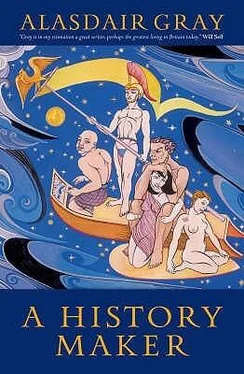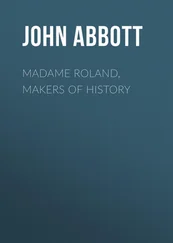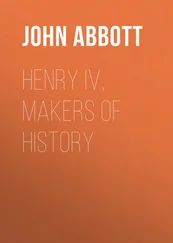This modern structure was on the site of Tibbie Shiel’s Inn where James Hogg (poet, novelist and tenant farmer at Altrieve and Mountbenger) gathered with his neighbours in the first decades of the nineteenth century. A large statue of the poet with crook, plaid and sheepdog was placed on the lower slope of Oxcleuch Rig near the end of that century, and now overlooks the Ettrick veterans’ garden of remembrance.
The Warrior house was drill hall, armoury, canteen, dormitory, gymnasium, infirmary, cinema, library, stable, garage, youth hostel, club room and old men’s home. Four distinct ranks used it.
1 — The Boys’ Brigade. These soldiers of any age over twelve had joined the army but not yet fought a battle. They spent a third of their time in martial exercise. A dedicated few spent more time on that but most enjoyed playing other games too.
2 — Officers. Between wars these spent two days a week training the Boys’ Brigade, the rest in martial sport, study and love affairs.
3 — Veterans: officers who had tired of war or grown too old for it. Their pastimes were advising the Boys’ Brigades, playing bowls or cards and visiting old men and women in quieter houses.
4 — Servants. These had a talent for housework, no wish to fight and preferred the company of men to women. They seldom left the Warrior house because their love affairs were with each other. The only class conflict was slight tension between servants attached to the officers’ mess and hero-worshipping cadets who sometimes worked as waiters.
Page 65.
March, march, Ettrick and Teviotdale etc. Based on March, March, Pinks of Election, a song published by Hogg in his Jacobite Relics, Blue Bonnets Over the Border is one of the many lyrics which Walter Scott (1771–1832) scattered through his novels. It is sung by Louis (one of Julian Avenel’s followers) in The Monastery . Set to a pleasant marching tune and slightly bowdlerized it was so popular with anglophone choirs in the late historical era that T.S. Eliot quotes it in The Awefull Battle of the Pekes and the Pollicles. Like other Scottish songs its local popularity was ensured by emphatic use of place names.
Page 74.
coronach = a Gaelic lament for the fallen.
Page 75.
bogie = a call to cancel a game while people are still playing it.
Page 80.
glaikit sumphs = irresponsible dullards.
Page 82.
girning = whining or wailing through teeth exposed as in a grin.
dour = determined, hard, stern, dull, severe, obstinate, unyielding, sullen, humourless, slow, sluggish, reluctant.
ahint = behind; at the rear end.
disjaskit = disjoined or discombobulated.
pawkie = crafty; shrewd.
couthie = friendly; sympathetic.
Page 88.
YE GOWK! = you cuckoo.
YE DOITED GOMERIL! = you crazed idiot.
YE STUPIT NYAFF! = you puny insignificance.
YE BLIRT! = you unexpected squall of rain; rain or wind; you childish outcry; you externally visible part of the genitalia of a female horse.

CHAPTER FOUR — PUDDOCK PLOT
Page 107.
carnaptious = irritable; contentious.
Page 108.
Secret societies (like governments, stock exchanges, banks, national armies, police forces, advertising agencies and other groups who made nothing people needed) had ended with the historical era.
All these organizations existed to create and protect money which everyone needed in the last centuries of the historical era. Wat did not know the wonderful value huge amounts of money added to the lives of those who owned them.
Page 111.
The times are racked with birth pangs. Every hour Brings forth some gasping Truth , etc. These lines are by Oliver Wendell Holmes (1809–94) Bostonian doctor, professor of anatomy and essayist. In 1858 his Autocrat of the Breakfast Table made him famous by its playful wit, fresh unconventional tone and vignettes in verse. The monstrous but quickly domesticated truths he describes here are nineteenth-century geological and biological discoveries not foreshadowed in the Bible. At first many feared these contradicted the word of God, undermined organized religion and would overturn established authority. In a few years it was obvious that ecclesiastical, legal and political bosses were as firmly established as ever, and scientific discovery was making industrial investment more profitable.
It was written by an American judge heralding fascism.
This statement is untrue. The speaker has confused the nineteenth-century doctor and essayist with his son of the same name, a U.S.A. Supreme Court Chief Justice who ruled in 1927 that third generation idiots could be legally sterilized, and also lived to see the rise of Hitler. The first O. W. Holmes could not herald fascism. He lived when the world’s most fascist states were European monarchies or the colonies of European monarchic empires. In those days no American would have thought such places patterns for the U.S.A.
Page 111.
Keep right on to the end of the road, Keep right on to the end! etc.
Probably the best-known song recorded by Sir Harry Lauder (1870–1950) Scottish mill boy and coal miner who became one of Britain’s most popular music-hall comedians. The mindless, onward-trudging optimism of the words and tune comforted many in the era between two World Wars. Lauder’s trite verses and use of a Lowland Scottish accent while wearing a Highland kilt made him particularly loathed by the great poet Hugh MacDiarmid, who also spoke with a Lowland Scottish accent and often wore a Highland kilt.
Page 116.
Those [eighteenth-century] Europeans thought they were safer than the Imperial Romans.
The historian Edward Gibbon (1737–94) began his most famous book thus:
In the second century of the Christian Aera, the Empire of Rome comprehended the fairest part of the earth, and the most civilized portion of mankind. The frontiers of that extensive monarchy were guarded by ancient renown and disciplined valour. The gentle, but powerful, influence of laws and manners had gradually cemented the union of the provinces. Their peaceful inhabitants enjoyed and abused the advantages of wealth and luxury. The image of a free constitution was preserved with decent reverence; the Roman Senate appeared to possess the sovereign authority, and devolved on the emperors all the executive powers of government. During a happy period, A.D. 98–180, of more than fourscore years, the public administration was conducted by the virtue and abilities of Nerva, Trajan, Hadrian and the two Antonines .
Gibbon deliberately used phrases prosperous Britons used about their own nation: most civilized portion of mankind, extensive monarchy, union of the provinces, free constitution etc. He then described Roman civilization slowly, continually collapsing through thirteen centuries of Christianity, German invasion and Mohammedan conquest until nothing remained but impressive ruins and words in books. However, he found differences suggesting his own civilization was more secure. The Roman Empire had failed because ruled by a single city: first Rome, then Constantinople. The civilization to which Gibbon belonged was European — not just British — and ruled the world from London, Paris, Amsterdam, Copenhagen, Madrid et cetera, from many capitals of nations too strong to be defeated by outside invaders, too united by shared advantages to seriously damage each other. Some were monarchies, some republics, but mutual toleration and an intelligent economic system were common to all, and their mastery of explosive armaments made them safe from barbarians.
Читать дальше













